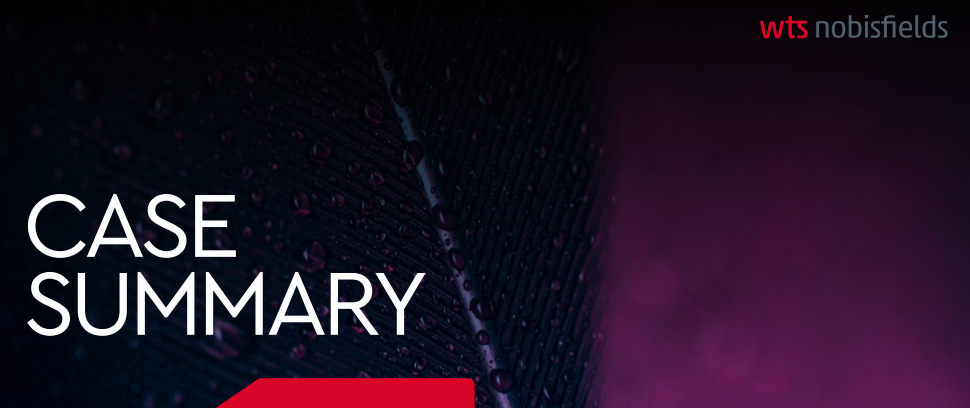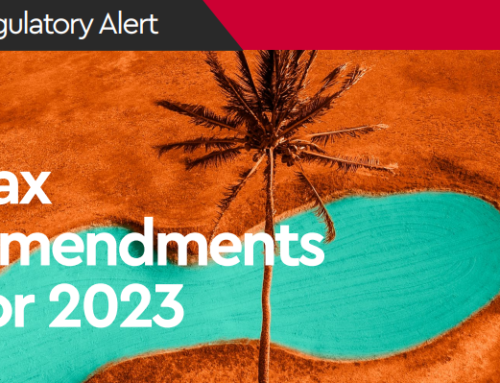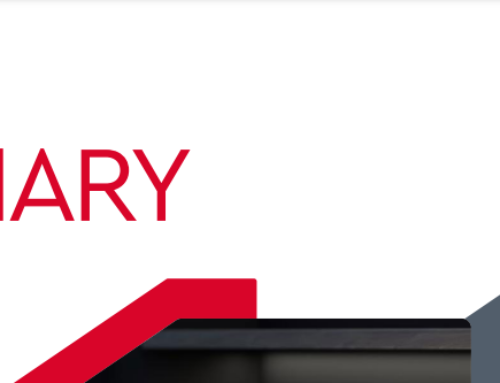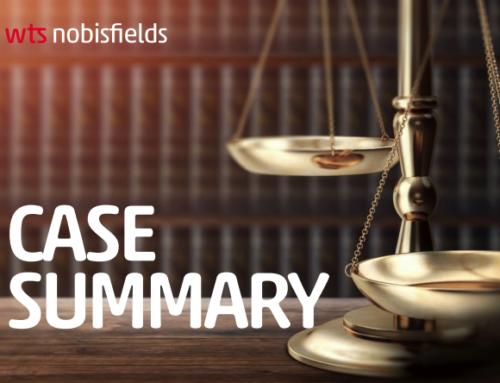Case Summary
Richard Amo-Hene Vrs Ghana Revenue Authority, Attorney General & Judicial Service
The Supreme Court of Ghana upheld the provisions of the Revenue Administration Act, 2016, Act 915 (as amended) and High Court (Civil Procedure) Rules, 2004 (C.I 47) of pay now and argue later in the case brought before the Supreme Court by Richard Amo-Hene.
The Plaintiff (Richard Amo-Hene) invoked the powers of the Supreme Court of Ghana under Article 2 clause 1 of the Constitution of Ghana, 1992 to declare Section 42(5) (b) of the Revenue Administration Act (as amended) and Order 54 rule 4(1) of the High Court (Civil Procedure) Rules as unconstitutional and consequently null, void and unenforceable.
FACTUAL BACKGROUND
Section 42(5)(b) of the Revenue Administration Act, 2016 (Act 915) sets out the procedures for objecting to a decision of the Commissioner-General. An objection against a tax decision shall not be entertained by the Commissioner-General unless the person has: a. In the case of import duties and taxes, paid all outstanding taxes including the full amount of the tax in dispute; and b. In the case of other taxes, paid outstanding taxes including 30% of the tax in dispute Similarly, Order 54 rule 4(1) of the High Court (Civil Procedure) Rules, 2004 (C.I 47) also provides that the High Court will not entertain an appeal against a tax assessment unless the aggrieved person has paid 25% of the disputed tax in the first quarter of that year of assessment as contained in the notice of assessment. Richard Amo-Hene sought a declaration by the Supreme Court to the effect that section 42(5)(b) of Act 915 and Order 54 rule 4(1) of C.I 47 were unconstitutional as the rule of “Pay Now and Argue Later” imposed by said provisions is inconsistent with articles 2(1), 17(1), 19(2)(c), 33(1) & (5), 125(2), 130(1), 132, 133(1) and 140 of the Constitution of Ghana, 1992 (the 1992 Constitution) which guarantee the presumption of innocence and a person’s right of access to the court.
THE CASE OF RICHARD AMO-HENE
Amo-Hene advanced the argument that where a taxpayer is required to pay thirty per cent (30%) of the disputed tax per Act 915 (as amended), or twenty-five per cent (25%) payment per the procedural rules in CI 47, these statutory provisions impute culpability on that taxpayer prior to the determination of the liability or otherwise of said taxpayer concerning the tax in dispute. The premise of Amo-Hene’s argument is that the presumption of innocence expressly provided for by the 1992 Constitution stipulates that a person is presumed innocent until his guilt is proved beyond reasonable doubt. Thus, Amo-Hene argues that by asking the taxpayer to pay 30% or 25%, the law rather presumes the guilt of the taxpayer as 30% or 25% culpable and the taxpayer then assumes the burden of proving his innocence which is in clear contravention to his constitutional right.
Amo-Hene further argued that the scope of the right of access to the Court was established for a fair and proper administration of justice. In defending his argument, Amo-Hene submitted that access to justice has two sides; the ability to walk into court and initiate a cause of action and the ability to effectively participate in court proceedings. He also submitted that per Article 35(3) of the 1992 Constitution, under the Directive Principles of State Policy, citizens are entitled to access public facilities and services, which can be read to include the courts, without any undue fetter or impediment. Thus, it was Amo-Hene’s case that where section 42(5)(b) of the Act 915 (as amended) and Order 54 rule 4(1) of CI 47 imposes the condition of pay now and argue later before a tax objection or tax appeal can be made to the High Court, this condition unduly restricts a person’s right to access the courts and participation in the administration of justice despite the constitutional provision for the presumption of innocence. Amo-Hene further submitted that this pay now and argue later requirement also clearly undermines the duty and right of a citizen to defend the 1992 Constitution per articles 2(1) and 130(1), and the condition of pay now and argue later was never envisaged by the framers of the 1992 Constitution to be a sine qua non requirement for constitutional litigation in Ghana.
THE CASE OF THE DEFENDANTS (GRA, ATTORNEY-GENERAL & JUDICIAL SERVICE)
The Defendants, in their defence, raised a preliminary issue on the jurisdiction of the Supreme Court to hear and determine the matter, and argued that the pay now and argue later concept per Section 42(5)(b) of Act 915 (as amended), and Order 54 rule 4(1) of C.I 47 does not contravene constitutional provisions that guarantee a fair hearing and a person’s right of access to the courts neither does it amount to an abuse of discretionary power as claimed by Amo-Hene. Firstly, the Defendants argued that AmoHene had not properly invoked the Supreme Court’s original jurisdiction as he was seeking enforcement of human rights provisions in the Constitution which is available in the High Court. According to the Defendants, he had cleverly disguised seeking the enforcement of human rights provisions as a constitutional interpretation or enforcement matter. Thus, where no genuine issue of constitutional interpretation and enforcement exists, the High Court is the court properly clothed with original jurisdiction to entertain the matter not the Supreme Court.
Secondly, the defendants argued that the Pay Now and Argue later rule is a balance between the taxpayer’s rights as against the need for the effective settlement of tax debts. The Defendants advanced this argument on policy grounds to the effect that the pay now and argue later requirement addressed the need to limit recalcitrant taxpayers strategically seeking to use the objection and appeal procedure to defer payment of their taxes. The Defendants further argued that the overriding purpose of the provisions in Section 42(5)(b) of Act 915 (as amended), and Order 54 rule 4(1) of C.I 47 is to secure revenue to run the machinery of the state while the dispute relating to the tax issue is resolved. The Defendants concluded that Amo-Hene had thus failed to demonstrate that Section 42(5)(b) of Act 915 (as amended), and Order 54 rule 4(1) of C.I 47 are in contravention of any constitutional provisions and as such his action ought to be dismissed.
ISSUES
The Court decided to look at the case based on three main issues. 1. Whether or not the plaintiff has properly invoked the original jurisdiction of the Supreme Court. 2. Whether or not Section 42(5)(b) of the Revenue Administration Act, 2016 which requires a taxpayer to pay all outstanding taxes including 30% of the tax in dispute before an objection to a tax decision can be entertained by the Commissioner General of the GRA is inconsistent with the spirit and letter of articles 2(1), 17(1), 125(2), 19(2)(c), 33(1), 132, 133(1), 140 of the 1992 Constitution and to the extent of the inconsistency void. 3. Whether or not Order 54 rule 4(1) of the High Court (Civil Procedure) Rules 2004 C.I 47 which requires a taxpayer to pay an amount not less than 25% of the amount payable in the first quarter of that year of assessment as contained in the notice of assessment before an appeal can be entertained by the High Court is inconsistent with the spirit and letter of articles 2(1), 17(1), 125(2), 19(2) (c), 33(1), 132, 133(1), 140 of the 1992 Constitution and impedes a person’s right of access to court, participation in the administration of justice and the presumption of innocence until proven or pleaded guilty and to the extent of the inconsistency void.
DECISION
The Supreme Court adopted the reasoning in Kwasi Afrifa v Ghana Revenue Authority & Anor., Writ No. J1/23/2021 dated 30th November, 2022, SC (unreported case) where it held that the original jurisdiction of the Supreme Court had been properly invoked under Article 2(1) to determine the inconsistency or otherwise of provisions of Act 915 with article 125, guaranteed rights of citizens under Chapter 5 and the spirit of the Constitution expressed in Chapter 6. The Supreme Court accordingly dismissed the preliminary issue raised by the Attorney General to the Supreme Court hearing and determining the matter. Concerning the issue of the constitutionality of section 42(5) of Act 915, in a 6-1 decision, the Supreme Court once again adopted its reasoning in the Afrifa case (supra) and dismissed Amo-hene’s reliefs for a declaration that said section 42(5) of Act 915 is unconstitutional and consequently void, null and unenforceable, an order setting said section aside for its inconsistency and an order of perpetual injunction restraining the Defendants from acting under said section.
According to the reasoning in the Afrifra case, section 42(5) of Act 915 does not create an undue fetter to the hearing of an objection by a citizen to any tax decision owing to the rest of the dispute resolution provisions under Act 915, and “upon a true and proper interpretation of Article 23 of the 1992 Constitution, section 42(5) of Act 915 is not inconsistent with and violative of the constitutional right to administrative justice guaranteed under the provisions of Article 23 of the 1992 Constitution”. Further, it was also the reasoning of the Supreme Court in the Afrifra case that “to the extent that any tax decision taken by the Commissioner General is an administrative decision, and tax decisions are by Act 915 made subject to objection, judicial review, and appeal, the regime provided under Act 915 for regulation of tax decision by the Commissioner-General passes the test of constitutionality.”
Finally, the Supreme Court also dismissed the remaining reliefs sought by Amo-Hene in relation to the third issue raised on the unconstitutionality of Order 54 rule 4(1) of CI 47 requiring payment of 25% of the amount payable in the first quarter of that year of assessment before an appeal can be entertained by the High Court. The Supreme Court referred to Export Finance Company Limited v Ghana Revenue Authority and Anor, Writ No. J1/7/2021 dated 30th November, 2022 SC, a similar writ questioning the constitutionality of Order 54 rule 4 of CI 47 and chose not depart from its position in the Export Finance Company case as the arguments urged on the Supreme Court and the references to case law and constitutional provisions by Amo-Hene were no different from that those argued before the Supreme Court in that case. In the Export Finance Company Ltd. case (supra), the Supreme Court held that based on the clear public policy rationale against allowing taxpayers and citizens to delay and evade their tax obligations to the state by taking advantage of loopholes in the law, “the Rules of Court committee did not act unconstitutionally in inserting rule 4 in Order 54 when formulating the rules and procedure regulating tax appeals in the country.” The Supreme Court then stated its position that Order 54 r 4 of CI 47 complements section 42 of Act 915 and being subsidiary legislation, it must yield to the parent legislation. Thus, where the appellant to a tax appeal has complied with the provisions of Act 915, the appellant need not comply with Order 54 r 4 of CI 47 in invoking the jurisdiction of the High Court. This interpretation accords with common sense and fairness as the lawmakers could not have intended that an appellant be compelled to pay the percentage twice before invoking the jurisdiction of the High Court.
IMPLICATION AND KEY TAKEAWAYS
- The settlement of outstanding tax liabilities and the payment of 30% of the disputed tax continue to serve as a pre-requisite for an objection to the tax decision of the Commissioner-General of the GRA.
- The Commissioner-General may grant a person’s request for a waiver of the 30% payment of the disputed tax.
- Upon denial of an application for a waiver of condition precedent to an objection being entertained, a person may proceed to the High Court seeking relief against the denial where in his opinion, the denial was made arbitrarily.
- The High Court will not entertain a tax appeal unless 25% of the disputed tax is paid in the first quarter of that year of assessment.
- The concept of pay now and argue later being pronounced as unconstitutional will open the floodgates for the citizenry to take advantage of and avoid or delay meeting their tax obligations to the State.
- The opportunity to apply for judicial review and appeal at the High Court against the Commissioner-General’s exercise of discretionary powers to waive or deny an application for waiver of condition(s) precedent to an objection may as well open the floodgates for numerous applications by taxpayers and citizens seeking relief against said denial of a waiver which may equally delay taxpayers honoring tax obligations to the State.
CONCLUSION
The Supreme Court determined that Section 42(5) of the Revenue Administration Act, 2016 (Act 915) and Order 54 rule 4(1) of the High Court (Civil Procedure) Rules 2004 (C.I 47) are not inconsistent with or in contravention to constitutional provisions thus dismissed Amo-Hene’s action in its entirety.





